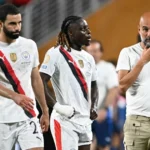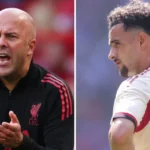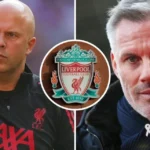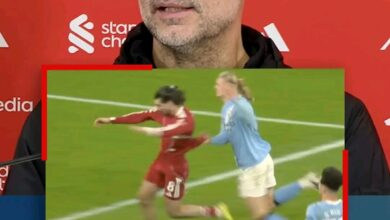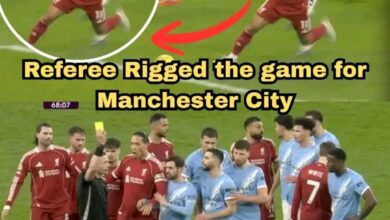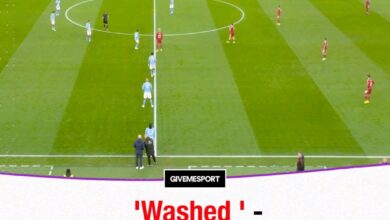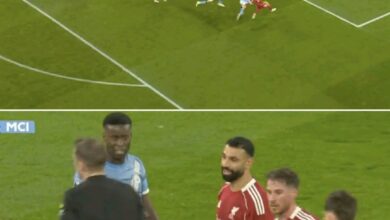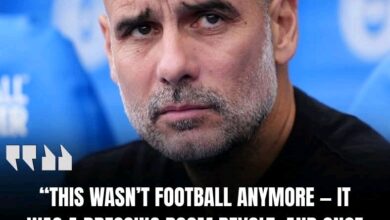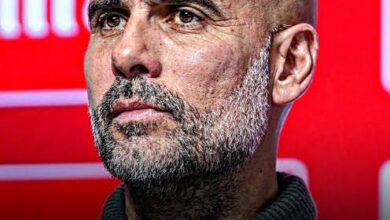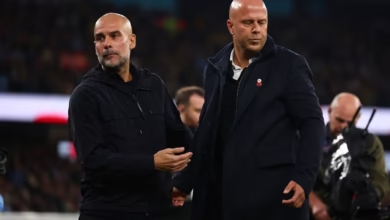Billingham reflects on a night when both sides of Pep Guardiola’s team were on show in a 3-2 loss
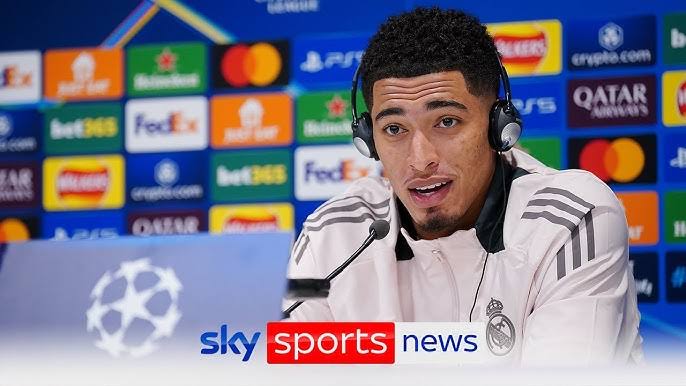
Manchester City faced a 3-2 defeat to Real Madrid in a Champions League clash that exposed both the potential and the vulnerabilities of Pep Guardiola’s team. The match was emblematic of City’s frustratingly inconsistent season, a pattern that has seen them fail to maintain form over extended periods. Ahead of the game, Guardiola had expressed uncertainty about which version of his team would turn up. He acknowledged that his side could perform well but had also been plagued by inconsistency throughout the campaign. Unfortunately for City, it was this inconsistency that was evident on the night, as the team showed two contrasting sides of themselves during the match.
At the outset, it appeared as though the more porous, fragile version of Manchester City from earlier in the season had returned. In their previous league match, City had suffered a heavy 5-1 defeat at Arsenal, and they were fortunate not to fall behind early in this fixture. Real Madrid had several chances, but they were denied by the offside flag, an excellent save from City goalkeeper Ederson, and some overplaying by Madrid’s attackers. These reprieves seemed to signal the potential for a solid City performance, but the game quickly took another turn. Despite their defensive shakiness, City showed moments of real quality in attack, with their offensive play looking far sharper than in recent matches.
Erling Haaland, continuing his remarkable Champions League run, opened the scoring for Manchester City in the first half, notching his 48th goal in as many appearances in the competition. The goal came from a fluid team move that was reminiscent of City’s best attacking performances under Guardiola. Haaland was at the center of the play, receiving a well-weighted pass from Josko Gvardiol, with the ball being crossed into his path by Jack Grealish, who delivered a precise lofted ball. The combination was textbook Guardiola football – a quick, flowing attack, executed with precision and skill. It was a moment that hinted at the high potential City possessed when they played to their strengths.
However, City’s joy was short-lived as Grealish was forced off the pitch after just 30 minutes, having suffered an injury. This setback was a blow to the team, as Grealish had been one of the standout performers in the early stages of the match. His injury meant that Phil Foden replaced him, but the interruption to the team’s rhythm seemed to have an effect. While City had scored first, they were still not in total control of the game. Real Madrid continued to press and look dangerous on the counterattack.
Manchester City went into halftime with a 1-0 lead, which was their first such advantage at the break in seven matches. However, their fragility after the break was evident once again. Real Madrid’s Kylian Mbappe equalized early in the second half, scoring with a scuffed volley from a floated free-kick. The goal was a reminder of how quickly things could change in high-stakes European games, and for City, it was a harsh realization of their failure to control matches when they needed to.
Throughout the season, Manchester City has struggled with controlling games, especially when under pressure. Their inability to kill off matches has been a recurring theme. This time, it was Madrid’s ability to transition quickly from defense to attack that exposed City’s weaknesses. When City lost their grip on the game, they were vulnerable to Madrid’s counterattacks. Despite this, City managed to restore their lead through another Haaland goal, a penalty that took him to 49 Champions League goals, leveling him with Alfredo Di Stefano and Zlatan Ibrahimovic in the competition’s all-time top scorers list. The penalty seemed to have set City on track for a narrow win, but there were still many twists left to come.
As the match approached its final stages, the scenario unfolded in ways that City fans would have found all too familiar. A mistake from goalkeeper Ederson – a poorly executed drop-kick – handed Real Madrid an easy opportunity to score. Brahim Diaz, a former Manchester City player, was on hand to finish the move and put Madrid 3-2 up. Diaz, who had made only 15 first-team appearances for City during his time at the club, chose not to celebrate after scoring, a small moment that underscored the emotional weight of the goal for both sides. It was a bitter blow for City, who had been so close to taking a lead into the second leg of the tie.
The defeat not only highlighted Ederson’s rare error but also exposed deeper issues in City’s overall performance. The team’s vulnerability in key moments was evident yet again, and it was this vulnerability that allowed Madrid to capitalize. Ederson, perhaps shaken by his earlier mistake, was caught out again in stoppage time, this time making an ill-timed rush off his line, which left him stranded and allowed Jude Bellingham to score an easy winner. Bellingham finished off a lob from Vinicius Jr. into an empty net. This was a moment of sheer frustration for City, as they had allowed Madrid to score a stoppage-time goal for a second time in a matter of minutes.
The defeat marked City’s first home loss in the Champions League after leading at halftime since April 2018, when they lost 2-1 to Liverpool in a quarter-final second leg. It was their seventh defeat in the Champions League this season, and once again, they had been undone in the final moments of the game. Guardiola was quick to acknowledge the mistakes made by his team. In his post-match comments, he stated that the team’s vulnerability was something that had happened many times throughout the season. For Guardiola, this defeat was another example of City’s struggles with poor decision-making and a lack of control in crucial moments. It was also a reminder of the pressure that had been mounting on his squad as the season progressed.
Guardiola, who has often been lauded for his tactical acumen, found himself unable to stop the bleeding in this match. He spoke openly about the issues facing his team, stating that bad decisions were costing them points and that injuries were taking their toll. Despite the disappointment of the loss, Guardiola remained pragmatic about City’s chances in the second leg at the Bernabeu. He acknowledged that it would be tough to overturn the result in Madrid, but he also expressed the belief that his team would fight for a comeback. Guardiola’s focus quickly shifted to the next game, as he urged his players to recover quickly and turn their attention to the Premier League match against Newcastle United.
Newcastle, who were in strong form, were set to play City in their next league fixture, and a win for Newcastle would lift them three points above City in the race for Champions League qualification. With City now having suffered as many defeats in the current campaign as they had in the previous four seasons combined, the pressure on Guardiola and his team was mounting. Despite having a talented squad with world-class players, City’s season had been plagued by inconsistency, and this latest defeat was a harsh reminder of how vulnerable they were in big matches.
As City prepared for their upcoming league game, the stakes were higher than ever. Their Champions League hopes now rested on a dramatic turnaround in Madrid, while their ambitions in the Premier League were also in jeopardy. A loss to Newcastle would leave them further adrift in the race for a top-four finish, a scenario that would have seemed unthinkable at the start of the season. With at least 16 games remaining in the league, City had plenty of time to recover, but the margin for error was shrinking.
The defeat to Real Madrid was not just about a single match; it was a reflection of City’s season as a whole. Despite the quality in their squad, Guardiola’s team had struggled to find the consistency that had been the hallmark of their previous successes. Injuries, mistakes, and poor decision-making had undermined their efforts, and they had been punished time and again in high-pressure situations. As the season entered its final stretch, the challenges ahead for Manchester City were immense. They needed to rediscover their best form quickly, or their hopes of challenging for silverware in both the Premier League and the Champions League would fade.
In the wake of the Real Madrid loss, City fans were left to wonder if their team could overcome the mistakes that had cost them so dearly. Guardiola, known for his meticulous approach and tactical brilliance, would have to rally his players and find a way to address the mental and tactical issues that had been exposed in this defeat. The second leg in Madrid would be a test of City’s character and resilience, while the upcoming Premier League fixtures would determine whether they could salvage their season and secure a place in the Champions League for the following year. Whatever the outcome, it was clear that City’s journey in both competitions would be far from straightforward.


